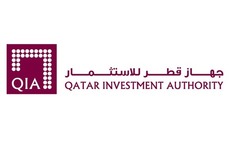
Q&A: Warburg Pincus' Charles R. Kaye
Charles R. Kaye, co-CEO at Warburg Pincus, discusses the growing importance of Asia to his firm, valuation bubbles in the technology space, and changes in the GP-LP relationship
Q: What key trends do you see in US private equity?
A: The key topic everybody is talking about these days is abundant capital. It feels as though we live in a world where savings are outrunning investment and this is creating pressure on everyone in the investment business to find rates of return that are consistent with the liability structures they have if they are LPs or the promises they have made to LPs if they are GPs. We see that at the buyout end of the market in the availability and cost of leverage and the incentives that creates around pricing - and I think the industry has been far more disciplined in this cycle than in prior ones. We also see it at the growth end of the spectrum, with some of the valuations in technology in particular.
Q: Would Warburg Pincus ever consider doing an Asia-specific fund?
A: We did have an international companion fund in the late 1990s when the firm had begun to invest more internationally. We did it last year with an energy companion fund, given the size and scale of the opportunity. But we have always liked the core diversified fund because it keeps the sense of risk and reward absolute. As the world fluctuates and we see opportunity sets change by industry, geography or stage we can be more nimble and flexible and pick our way through rather than target a pool of capital at a moment in time which may or may not be the best time to be thinking about investing. By and large, what I have seen over a long period of time is the best time to raise money and the invest money are rarely in sync.
Q: You set up the firm's Asia business in the 1990s. To what extent has the region met or exceeded your expectations?
A: I moved to Hong Kong at the end of 1993 and set up our business in 1994. When I first got there I showed up with nothing much more than a business card so my ambition was to find a place to sit. It has been a phenomenal, fascinating and personally rewarding opportunity to see the development of that part of the world over the last 20 years. We now have one third of our firm living in Asia and we have about the same percentage in our most recent fund in the region. China and India are the two largest places outside of the US where we invest.
Q: What is the next step for Warburg Pincus in Asia?
A: The opportunity set in China and India is interesting and we have begun to explore opportunities elsewhere in the region. We have invested in Vietnam and Indonesia now. We are also increasingly not just looking across Asia. One of the advantages of our firm is that because we run in such a globally integrated manner - a single global fund, not fiefdoms around the world - we have an ability to interact with companies where they do business and where their customers and operations are, which is increasingly global.
Q: You have participated in a number of technology transactions in China. Is there a concern about valuations?
A: I don't think there is any doubt that it is beyond exuberant, that a bubble exists in that space. What people always miss - and we learned the same lesson back in 2000-2001 - is that there will be some great winners coming out of this. Amazon was born of this vintage in the previous cycle, and others as well. There is also a lot of money invested in things that in hindsight will turn out not to have been productively employed. But more broadly, a lot of this is creating capacity and infrastructure that will lay the seeds for a whole series of interesting economic developments. Some people do well, some people don't - that's the nature of the private equity risk-reward business. We have done quite well with companies like 58.com, Koudai, Uxin, Liepin, and others, but at the same time we are worried that it feels pretty frothy.
Q: How has the GP-LP relationship changing due to issues such as fees?
A: We have for a long time been prepared to share the benefits of scale through reductions in fees in order to preserve what we think is the core attractive feature of the business, which is carry. For other firms, as they become public or they become multi-asset class players, the challenges are a little bit different. Asset classes also become regulated and that creates a whole series of discussions between GPs and LPs. I have always thought that the asset class at its core has two fundamental advantages. First, it is long-dated and illiquid, so you worried about what you paid for it and what you sold it for and you didn't really have to worry about what happened in between. Second, it has a very simplistic alignment of interest: If the companies do well, the entrepreneurs do well, the funds that invested do well, the LPs do well and the GPs do well. We all need to be careful about things that eat away at the margins of these and take away what is the core comparative advantage of the asset class.
Latest News
Asian GPs slow implementation of ESG policies - survey
Asia-based private equity firms are assigning more dedicated resources to environment, social, and governance (ESG) programmes, but policy changes have slowed in the past 12 months, in part due to concerns raised internally and by LPs, according to a...
Singapore fintech start-up LXA gets $10m seed round
New Enterprise Associates (NEA) has led a USD 10m seed round for Singapore’s LXA, a financial technology start-up launched by a former Asia senior executive at The Blackstone Group.
India's InCred announces $60m round, claims unicorn status
Indian non-bank lender InCred Financial Services said it has received INR 5bn (USD 60m) at a valuation of at least USD 1bn from unnamed investors including “a global private equity fund.”
Insight leads $50m round for Australia's Roller
Insight Partners has led a USD 50m round for Australia’s Roller, a venue management software provider specializing in family fun parks.







